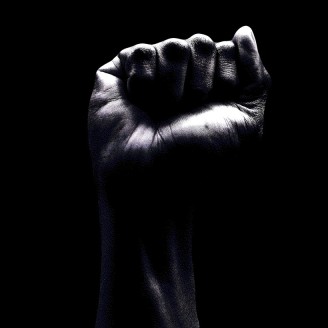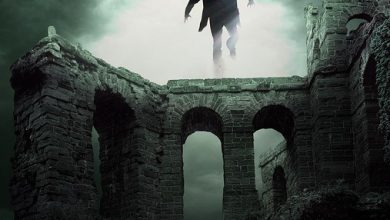
South of the Border by Mbulelo Vizikhungo Mzamane is a touching poem that deals with themes of forced migration, racial segregation, and refusal of a dignified life.
Mbulelo Vizikhungo Mzamane was a South-African author whose intellectual contributions to South African literature are well praised and treasured. Most of his works were banned in apartheid South Africa owing to their provocative ideas to end the struggle against the segregation system. His activism led to his exile which gave birth to many artistic ventures such as South of the Border.
South of the Border | Summary and Analysis
South of the Border is composed in free verse. The speaker of the poem is ambiguous but an authoritative and commanding tone suggests these lines as an order from a white official in power who lays down the rules and regulations for the blacks. There is also a possibility that the speaker belongs to the sect that doesn’t support the apartheid and he/she brings to the fore certain ideas and pronouncements popularising racial slurs that the non-whites unwillingly lend their ears to. In either case, the poem is a microcosmic portrayal of a black Diaspora whose forceful migration to another part of his homeland does not put a full stop to his/her miseries. On the contrary, it turns out to be the opening page of a book that pens down a life of indignity, struggle, and constant racial discrimination.
South of the Border Analysis, Lines 1-7
South of the border, Down Bantustan way
Develop along your own lines:
Invent, first, the wheel
Before you can ride in a car.
Television is not for you
But we can make concessions-
Use the gramophone.
The poem commences on a note of traveling to the Bantustan- the territory that is set aside for the black community of South Africa as a part of the segregation law of the apartheid government. South Africa’s geographical location lies in its name i.e. south of Africa. Separating the inhabitancy further shifts the blacks to the south of South Africa which reflects their peripheral occupancy and thus marginalization. South as a direction metaphorically indicates a downward movement which in this context symbolizes the community’s degradation and loss of worth.
There is a clear instruction for the people to develop “along [their] own lines” to keep them in check which acts as a constant reminder of their difference from the white settlers. Like a child, a step-by-step procedure to conduct their lives reaches their ears which sounds unpleasant and humiliating. The blacks are incapable to own and ride vehicles according to the speaker. They need to prove their skills first by inventing the wheel. This reference to the invention of the wheel dates back to ancient history. Comparing the blacks to early mankind’s savage and primitive lifestyle, the poem expounds on a popular cultural belief that deems the black community as backward.
Further, source of entertainment like television which is a crucial medium that connects the world to an individual becomes a topic of contention for the speaker. The black settlers witness a prohibition on their access to television but as a charitable gesture, gramophones seem to save their day. This obsolete sound-producing device mirrors the thoughts about the black lives that many colonialists and supporters of apartheid view as unrefined and good-for-nothing.
South of the Border Analysis, Lines 8-14
Bathrooms, flush Toilets-
You need but very few
Since you’ve never been ashamed to wash
Proud and Naked,
In the village stream,
Or to hide your heels,
In the bush.
The poem continues on the line of argument that supports an area of living advocating underdevelopment. Basic sanitation needs like washrooms find a low spot on the priority list because again, the segregationist hints at the primordial way of living by these “orients” who can wash in open. The alliteration “hide your heels” is both a slang and a racial slur that refers to the contempt the whites feel for the blacks and to the blackness of their body as well as the excrement which should find a hiding spot in the bushes.
South of the Border Analysis, Lines 15-22
Whiteman’s medicines
Are your herbs, liquefied –
Stick to the herbs.
Agriculture is the basis of your economy,
Try to cultivate the desert.
And to this be as true
As night follows day
For greater is your reward in heaven
The last set of lines adopts a condescending tone at its peak. The speaker deliberately draws a contrast between the two lifestyles where the whites are moving on the path of advancement with medical discoveries while the blacks still stick to their agrarian roots. However, if one observes closely, there is a mockery at play when the speaker asks the blacks to “cultivate the desert.” Desert implies barrenness and hopelessness. An attempt to cultivate the desert resembles the Greek myth of Sisyphus whose eternal punishment to “roll a rock up to the top of a mountain, only to have the rock roll back down to the bottom every time he reaches the top” highlights the futility of labor which lacks any progress.
Labour is what marks the destiny of the blacks- first slavery and now apartheid. The poem concludes with the perpetual torture and drudgery the black community needs to endure to achieve a reward not in their current lives, but ironically in heaven. The whole notion of afterlife salvation culminates the poem with a satiric bent as the white settlers make sure of the impossibility of attaining solace and success in the contemporary life the blacks continue to live.


